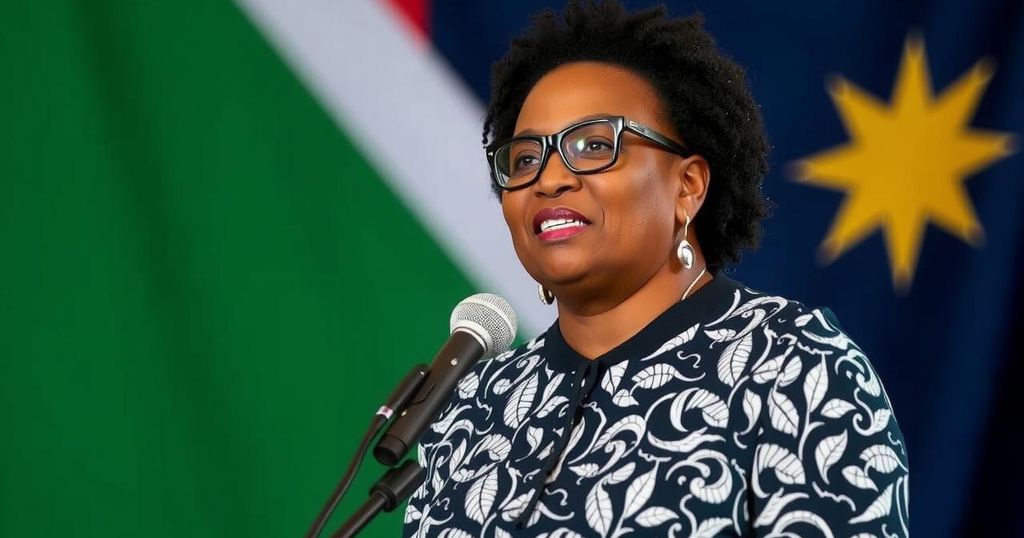Namibia’s Historic Election: Potential First Female President on the Horizon

Namibia may elect its first female president, Netumbo Nandi-Ndaitwah, in the upcoming elections with significant voter registration and the potential for historic change. SWAPO faces challenges following electoral losses and corruption scandals. Voter priorities include youth unemployment and women’s rights, positioning this election as crucial for the country’s future.
Namibia is poised to potentially elect its first-ever female president in the upcoming elections this week, with Vice President Netumbo Nandi-Ndaitwah as the frontrunner. Voter registration shows that approximately 1.4 million citizens, nearly half of the country’s population, have signed up to participate in this pivotal election, involving 15 political parties competing for the presidency and National Assembly seats. Preliminary results from early polls indicate that Nandi-Ndaitwah and the South West Africa People’s Organization (SWAPO) are leading the charge.
SWAPO, which has governed Namibia since it gained independence from South Africa in 1990, faces challenges following its loss of a two-thirds majority in the National Assembly in 2019, attributed to corruption scandals in the fishing industry that led to arrests and convictions of high-profile politicians and business figures. Political analysts warn that the 2019 election results serve as a crucial message to the party; they must engage younger voters who prioritize good governance over historical ties to liberation struggles, a dilemma also faced by other former liberation movements in Africa.
At 72, Nandi-Ndaitwah aims to address youth unemployment—currently at 20%—by pledging to invest approximately 85 billion Namibian dollars over five years to create over 500,000 jobs, although critics cast doubt on the feasibility of these targets. Voter concerns regarding women’s issues including reproductive rights, equal pay, and healthcare are expected to be significant in the upcoming election.
If elected, Nandi-Ndaitwah would join the ranks of female leaders on the continent, such as Ellen Johnson Sirleaf, Malawi’s Joyce Banda, and Central African Republic’s Samba Pranza. Political observers emphasize the need for her to operate with independence and accountability while advocating for policies that enhance women’s political participation. SWAPO will encounter competition from the Independent Patriots for Change and the Affirmative Repositioning Party, led by prominent political figures.
In the broader context, elections across Southern Africa this year have yielded transformative political outcomes, from the ANC losing its longstanding parliamentary majority in South Africa to significant opposition victories in other nations. This political climate sets the stage for Namibia’s potentially historic election.
The political landscape in Namibia is significantly changing as the nation approaches its presidential and National Assembly elections. Vice President Netumbo Nandi-Ndaitwah has emerged as a strong candidate who may make history as the first female president. This pivotal election, with nearly half of the population registered to vote, is critical not only for SWAPO’s governance but also for addressing pressing issues such as youth unemployment and women’s rights. The ramifications of past electoral results, particularly the decrease in SWAPO’s influence and the challenges of engaging younger voters, intensify the urgency of this election as it reflects broader trends throughout southern Africa.
The upcoming elections in Namibia present a landmark opportunity for the country to potentially elect its first female president, an event that could dictate the nation’s approach to governance and social issues. With significant voter registration and a shifting political landscape characterized by past corruption allegations, the outcome of this election will be pivotal, marking either a continuation of SWAPO’s leadership or a movement toward new political dynamics. Ultimately, this election may shape not only Namibia’s immediate future but also its long-term political trajectory.
Original Source: abcnews.go.com







